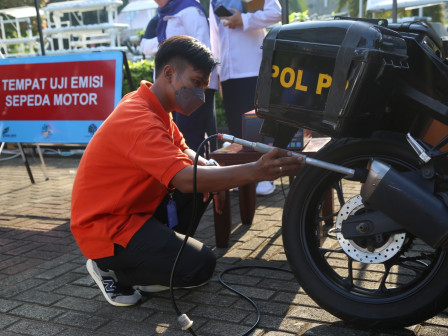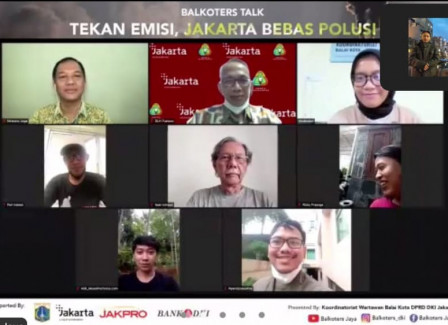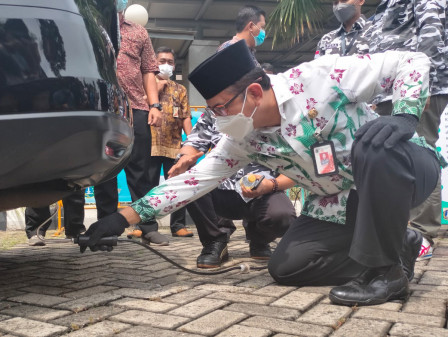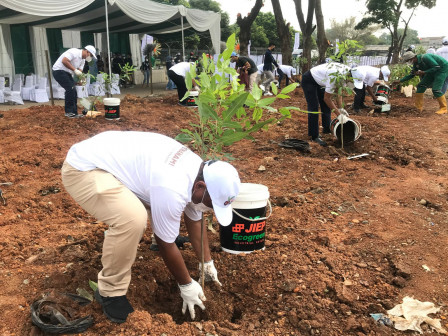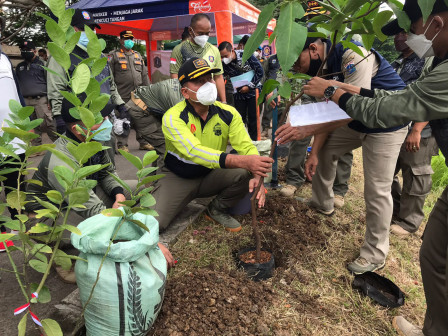Jakarta Continues to Reduce Unhealthy Days in Jakarta
Reported by Aldi Geri Lumban Tobing | Translated by Nugroho Adibrata
The Jakarta administration's efforts to improve air quality in Jakarta are bearing fruit.
We keep improving these efforts every year
It is marked by the reduction in Unhealthy Days in 2020 to 90 days compared to the previous year's 183 days. This is due to the increased participation of citizens in participating in emission tests.
Jakarta Environment (LH) Agency Head, Asep Kuswanto said, last year, many workshops had been involved to provide emission test services and managed to increase the number of participants up to 35 times or 465,048 vehicles.
City Planning Observer Appreciates Jakarta Government's Efforts in Improving Air Quality"We keep improving these efforts every year," he concluded, Sunday (1/30).
He explained several aggressive steps to improve air quality in Jakarta were contained in the Governor's Instruction number 66/2019 on Air Quality Control.
Those several steps were limiting vehicle age, building access for pedestrians, increasing emission testing, installing solar rooftops in mandatory industries, monitoring industrial sources, etc.
According to the 2020 emissions inventory review, he identified the main sources of air pollution in Jakarta from the transportation sector and the manufacturing industry.
Including the rapid population growth that goes hand in hand with the increasing use of motorized vehicles, causing an increase in fuel consumption in Jakarta until triggering more exhaust gas emissions.
"The industrial sector is also a key sector that must be addressed to improve air quality in Jakarta," he expressed.
Last year, the administration required the installation of a Continuous Emission Monitoring System (CEMS) in Jakarta's industrial sector, which focuses on steam power plant activities and steel smelting activities.
"From all industry specifications, there are eight companies that have to install CEMS and have fulfilled their obligations," he said.
Even, he also constantly monitors industries operating in Jakarta through various programs.
"We also issue sanctions for industries that do not meet the quality standards according to regulations," he stated.

